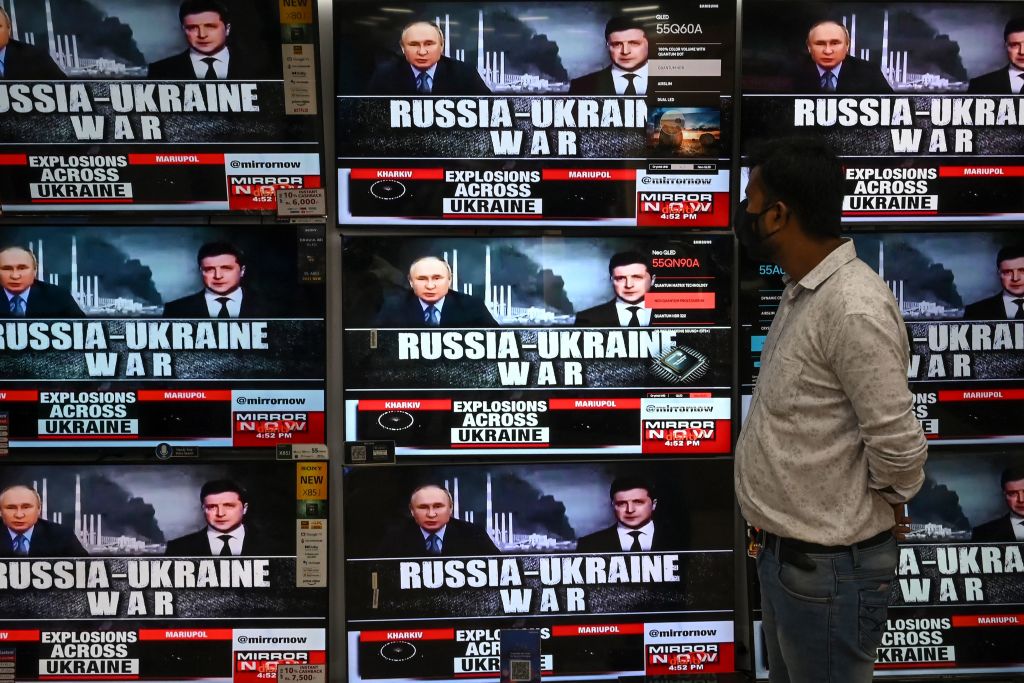 Print This Post
Print This Post- The Strategist - https://www.aspistrategist.org.au -
Double standards are normal in foreign policy
Posted By Ramesh Thakur on May 3, 2022 @ 12:31

Article printed from The Strategist: https://www.aspistrategist.org.au
URL to article: https://www.aspistrategist.org.au/double-standards-are-normal-in-foreign-policy/
[1] The power of human rights: https://www.cambridge.org/core/books/power-of-human-rights/3E62C6D43DE50B0F6179C2BD2B3D3EBB
[2] white man’s burden: http://historymatters.gmu.edu/d/5478/
[3] pointed out: https://www.ft.com/content/d7baedc7-c3b2-4fa4-b8fc-6a634bea7f4d
[4] General Assembly resolution: https://inews.co.uk/news/un-vote-ukraine-russia-countries-abstained-general-assembly-result-resolution-explained-1495346
[5] free pass: https://spectator.com.au/2022/04/why-does-india-get-a-free-pass-for-supporting-russia/?utm_medium=email&utm_campaign=MDS%20%2020220425%20%20GK&utm_content=MDS%20%2020220425%20%20GK+CID_ff05382137270ce3547b142485ca742a&utm_source=CampaignMonitor_Australia&utm_term=Why%20does%20India%20get%20a%20free%20pass%20for%20supporting%20Russia
[6] there’s no moral equivalence: https://www.abc.net.au/news/2022-03-07/scott-morrison-urges-china-to-condemn-russia/100888456
[7] noted: https://indianexpress.com/article/india/modi-intervened-several-times-with-putin-during-war-on-ukraine-boris-johnson-7882605/
[8] renewable energies: https://theprint.in/diplomacy/eu-pushes-for-energy-cooperation-with-india-as-it-aims-to-diversify-away-from-russian-oil/930081/
[9] Indian official: https://indianexpress.com/article/india/how-delhi-carved-out-its-diplomatic-space-on-russia-ukraine-war-7841663/
[10] pointedly remarked: https://economictimes.indiatimes.com/news/india/indias-monthly-purchase-of-russian-oil-less-than-what-europe-does-in-an-afternoon-jaishankar-in-us/videoshow/90791455.cms
[11] probably less than: https://www.republicworld.com/world-news/russia-ukraine-crisis/india-probably-buys-less-oil-from-russia-in-month-that-what-europe-does-in-afternoon-eam-jaishankar-articleshow.html
[12] from Afghanistan: https://theprint.in/diplomacy/look-beyond-ukraine-world-threw-afghanistan-under-the-bus-jaishankar-reminds-europe/931475/
[13] India’s security interests: https://toda.org/global-outlook/the-return-of-the-taliban-heightens-indias-security-concerns.html?searched=saran&advsearch=oneword&highlight=ajaxSearch_highlight+ajaxSearch_highlight1
[14] €273 million worth of arms: https://www.telegraph.co.uk/world-news/2022/04/22/exclusive-france-germany-evaded-arms-embargo-sell-weapons-russia/
[15] Chinese military base: https://www.theaustralian.com.au/nation/politics/scott-morrisons-red-line-warning-on-china-base/news-story/aedc30c4be318b5ee7fcc13a5236fe7d
[16] White House statement: https://www.whitehouse.gov/briefing-room/statements-releases/2022/04/22/readout-of-senior-administration-travel-to-hawaii-fiji-papua-new-guinea-and-solomon-islands/
[17] Cyril Ramaphosa: https://www.aljazeera.com/news/2022/3/18/update-1-s-africas-ramaphosa-blames-nato-for-russias-war-in-ukraine
[18] trade-liberalising agreement: https://www.internationalaffairs.org.au/australianoutlook/india-australia-economic-cooperation-trade-agreement-a-step-toward-a-resilient-global-supply-chain-and-stable-indo-pacific/
[19] cornerstone of security in the Indo-Pacific: https://todaynationnews.com/austin-calls-indo-us-relationship-cornerstone-of-indo-pacific-security-as-china-seeks-to-reshape-region/
[20] acknowledged: https://www.ndtv.com/india-news/india-us-talks-india-us-relations-india-us-2-plus-2-talks-anthony-blinken-india-now-partner-of-choice-anthony-blinken-on-moscow-new-delhi-ties-2880247